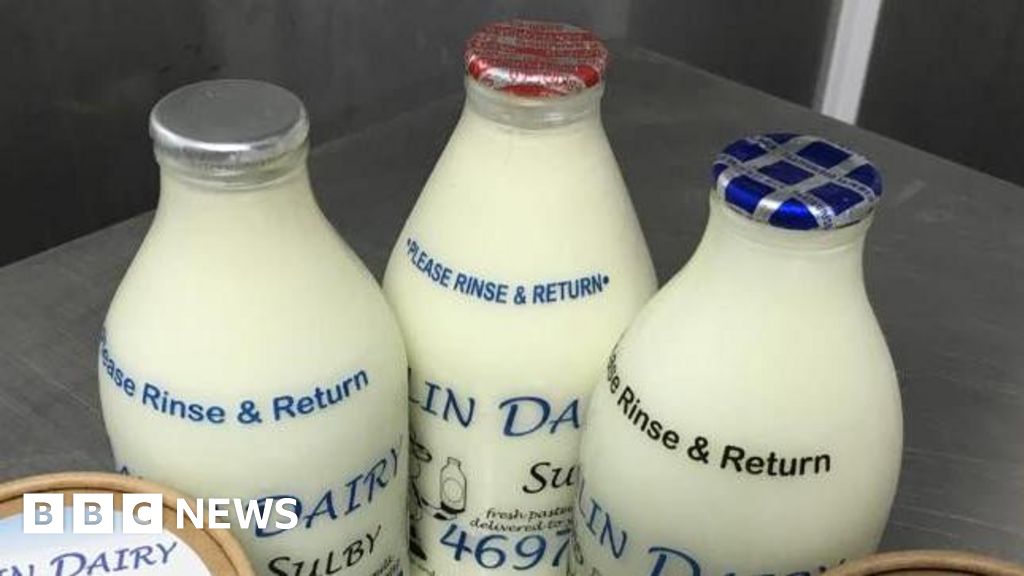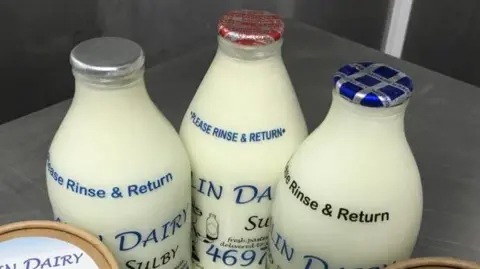 Aalin Dairy
Aalin DairyLong dry spells over the summer has hit milk production on a small dairy on the north of the Isle of Man “a lot harder than expected”, a farmer has said.
Carl Huxham from Aalin Dairy said about 40% of his herd were affected by the low quality of grass over a 10-day period, which meant production had “dropped off the edge of a cliff”.
He explained the situation was compounded by the loss of two cows during calving, and the farm had been unable to find replacements due to importation restrictions to prevent bluetongue.
Sarah Comish from the Manx National Farmers’ Union said the season had been “very challenging” and the effects of the weather “were not limited to dairy farming”.
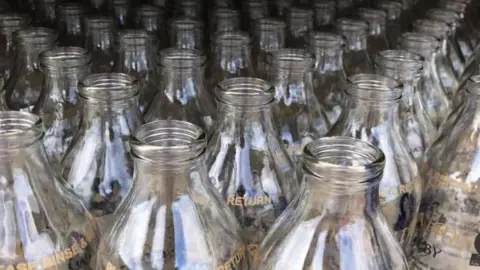 Aalin Dairy
Aalin DairyShe said producers in the north of the island had seemed to “suffer harder” due to the type of soil found there during drought conditions.
A ban on live imports from England, Scotland and Wales, meant it was “extremely difficult” to secure new livestock the only available route to bolster and replenish herds – Northern Ireland – because of limited ferry sailings to the country, she said.
Mr Huxham said the industry was “stuck between a rock and hard place” due to the restrictions, and it would be December before he was able to transport replacement cows to the island.
But he admitted the drought conditions at his farm in Sulby had been “the catalyst for the blip” in production and he hoped the herd would recover over the coming months.
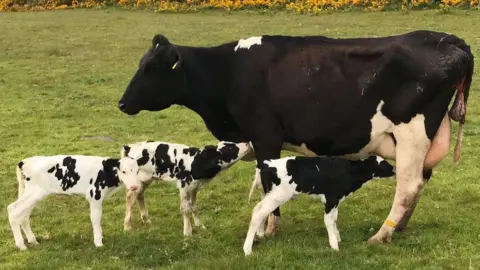 Aalin Dairy
Aalin DairyFollowing “cancelled and depleted deliveries” to customers, the farmer said they “just had to be honest” and issue an update online and by letter.
He said the team would be concentrating on managing supply and demand, but some products such as yoghurt would not be available until milk levels rise.
“The agriculture industry isn’t easy on the best of days, you’ve got to be resilient. We’re just going to have to take it one day at a time,” he said.
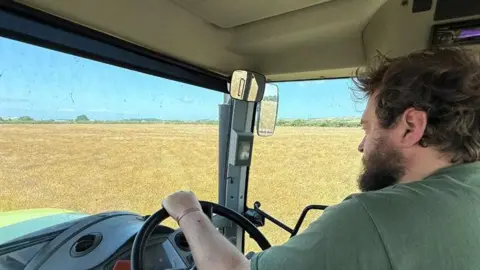 Sam Morrey
Sam MorreyLast month, Ronaldsway Met Office confirmed the Isle of Man had experienced its warmest summer on record, which also affected arable farmers like Sam Morrey, who said he had “never seen farms so dry”.
Grass crops on Ballacorey Farm, in Andreas, were “just dying in front of us” because there was “very little moisture in our sandy soil”, he said.
“You were looking to combine crops in 10 days and then three days later you’d be out there cutting,” he said, adding: “It was a strange one.”
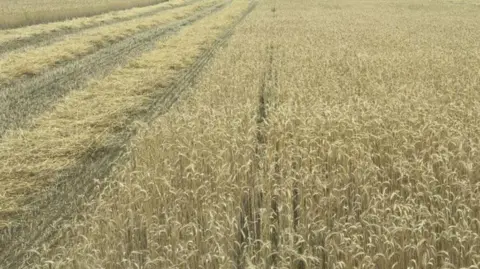 Sam Morrey
Sam MorreyMr Morrey said the conditions had meant “big knock-on effects to the business” from lower yields compared to the farm’s fixed costs for thing like fertilisers.
However, the warmer weather did mean there had been “very little costs” to dry crops, he said.
The family farm had also benefited from a “bumper” summer the year before, which had led to an extra hay 500 bails being stored over the winter as a “safety net” for the business.
The conditions in summer 2025 meant that surplus sold out, but without it “I don’t know what would’ve happened”, he said.
“We were lucky, but those who were to down to the bare minimum were struggling a lot,” he added.
